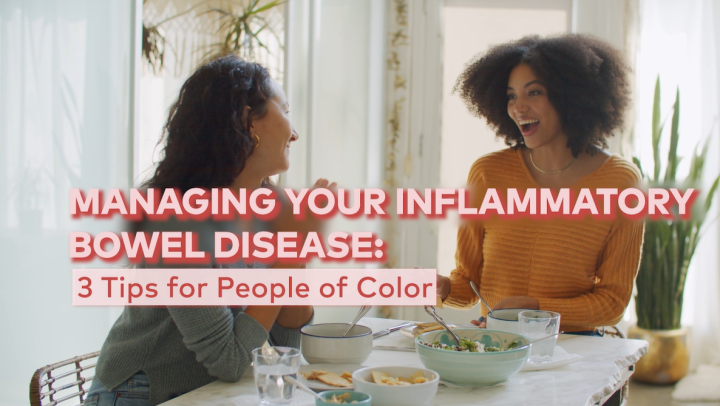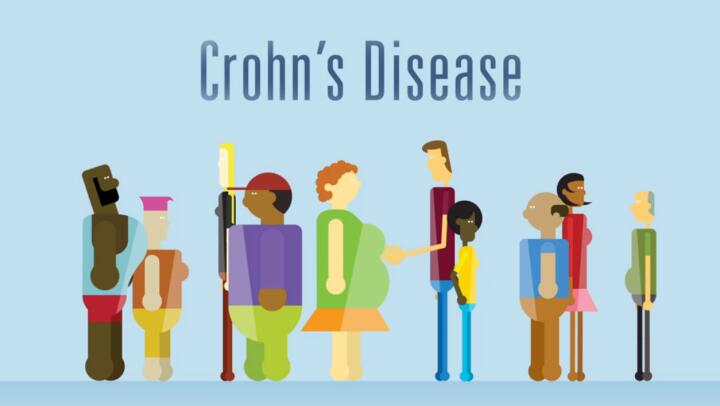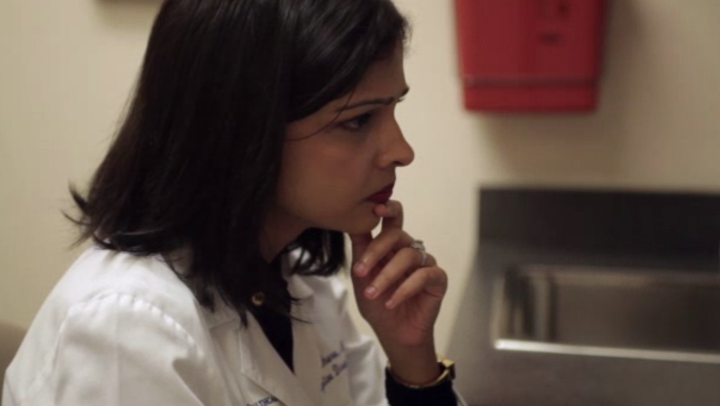8 Myths About Ulcerative Colitis

Medically Reviewed By William C. Lloyd III, MD, FACS
Written By Linda Wasmer Andrews on June 22, 2021
-
 Don't be fooled by these UC myths.When you have ulcerative colitis (UC), you may feel as if you're all alone with the problem. In fact, half a million Americans have UC, according to the American College of Gastroenterology. Yet many people still don't know much about the disease. How many of these myths have you fallen for?
Don't be fooled by these UC myths.When you have ulcerative colitis (UC), you may feel as if you're all alone with the problem. In fact, half a million Americans have UC, according to the American College of Gastroenterology. Yet many people still don't know much about the disease. How many of these myths have you fallen for? -
 Myth No. 1: UC is the same thing as Crohn's disease.Truth: Both UC and Crohn's disease trigger inflammation along the intestininal tract. But UC predominantly affects the large intestine, while Crohn's can affect the small intestine, large intestine, or any part of the digestive tract. Also, UC involves only the innermost lining of the intestinal wall; whereas, Crohn's can extend through all layers.
Myth No. 1: UC is the same thing as Crohn's disease.Truth: Both UC and Crohn's disease trigger inflammation along the intestininal tract. But UC predominantly affects the large intestine, while Crohn's can affect the small intestine, large intestine, or any part of the digestive tract. Also, UC involves only the innermost lining of the intestinal wall; whereas, Crohn's can extend through all layers. -
-
 Myth No. 2: UC is caused by emotional stress.Truth: Doctors don't believe that stress causes an initial bout of UC. However, once you have the disease, stress may make it harder to manage the symptoms. A symptom flare-up, in turn, may just create more stress. Fortunately, treatment can help you break free of this vicious cycle.
Myth No. 2: UC is caused by emotional stress.Truth: Doctors don't believe that stress causes an initial bout of UC. However, once you have the disease, stress may make it harder to manage the symptoms. A symptom flare-up, in turn, may just create more stress. Fortunately, treatment can help you break free of this vicious cycle. -
 Myth No. 3: UC is caused by a food allergy.Truth: There's no scientific evidence that UC is caused by sensitivity to any food. However, if you already have the disease, certain foods may trigger or worsen your symptoms.
Myth No. 3: UC is caused by a food allergy.Truth: There's no scientific evidence that UC is caused by sensitivity to any food. However, if you already have the disease, certain foods may trigger or worsen your symptoms. -
 Myth No. 5: UC causes only digestive problems.Truth: UC sometimes leads to complications outside the digestive tract. Examples include joint pain, eye irritation, kidney stones, liver disease, bone weakening, and skin problems.
Myth No. 5: UC causes only digestive problems.Truth: UC sometimes leads to complications outside the digestive tract. Examples include joint pain, eye irritation, kidney stones, liver disease, bone weakening, and skin problems. -
-
 Myth No. 6: UC always means a high risk for colon cancer.Truth: UC occurs in the large intestine, which is composed of the lengthy colon and short rectum. If UC affects your entire colon for many years, it raises your risk for colon cancer. But if only the lower part of your colon is affected, your risk of developing colon cancer is no higher than that of someone without UC.
Myth No. 6: UC always means a high risk for colon cancer.Truth: UC occurs in the large intestine, which is composed of the lengthy colon and short rectum. If UC affects your entire colon for many years, it raises your risk for colon cancer. But if only the lower part of your colon is affected, your risk of developing colon cancer is no higher than that of someone without UC. -
 Myth No. 7: There's a special diet that cures UC.Truth: It's true that dietary changes may ease some symptoms of UC. But no diet has been proved to cure the disease, and foods don't seem to play a major role in causing the underlying inflammation.
Myth No. 7: There's a special diet that cures UC.Truth: It's true that dietary changes may ease some symptoms of UC. But no diet has been proved to cure the disease, and foods don't seem to play a major role in causing the underlying inflammation. -
 Myth No. 8: Most people with UC need surgery.Truth: Most people with UC can control their disease with medication. Although some eventually need surgery to remove the rectum and part or all of the colon, they're in the minority. Estimates of how many people with UC fall into this group range from 10 to 40%.
Myth No. 8: Most people with UC need surgery.Truth: Most people with UC can control their disease with medication. Although some eventually need surgery to remove the rectum and part or all of the colon, they're in the minority. Estimates of how many people with UC fall into this group range from 10 to 40%.
8 Myths About Ulcerative Colitis
































